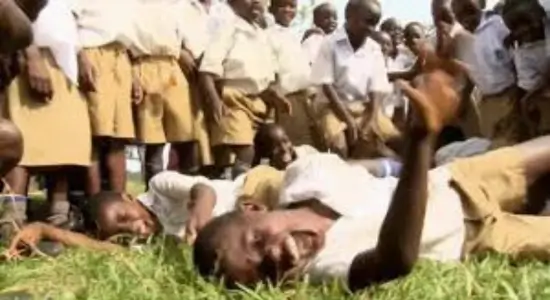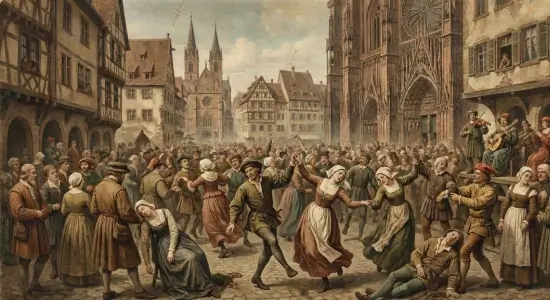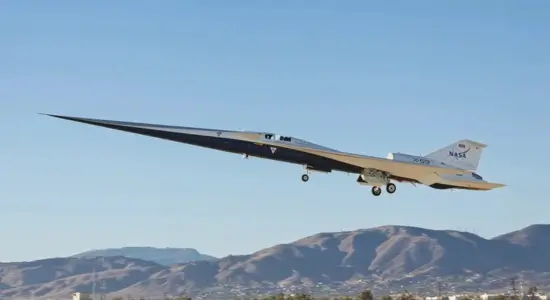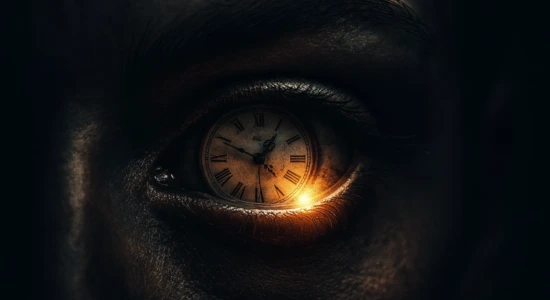The jungle didn’t want him. The crash should’ve killed him. The predators could’ve eaten him. But Antonio Sena survived. And he did it by thinking like a monkey.
It started like a routine flight—just a quick job. Antonio Sena had been hired to deliver diesel to an illegal gold mine buried deep in Brazil’s northern Amazon. He took off from Alenquer in a single-engine Cessna 210. The rainforest yawned wide beneath him. He’d flown this route before. But that day, the sky had other plans.
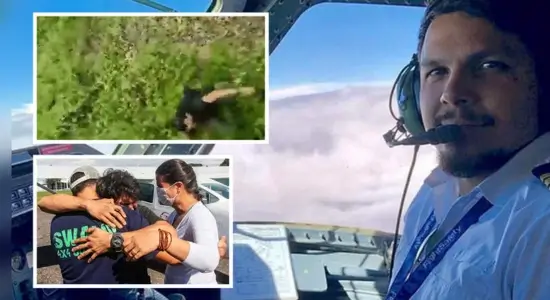
Without warning, the engine died midair. No sputter. No second chance. Just silence. He had five minutes to make a decision.
From 1,000 meters up, he plunged. Crashed.
Miraculously, he survived—no broken bones, no internal bleeding. But the real danger had just begun. The plane, packed with diesel, exploded into flames. Everything burned. Sena grabbed what he could before the fire swallowed it all: a backpack, three bottles of water, four sodas, one bag of bread, rope, an emergency kit, a lantern, and two lighters.
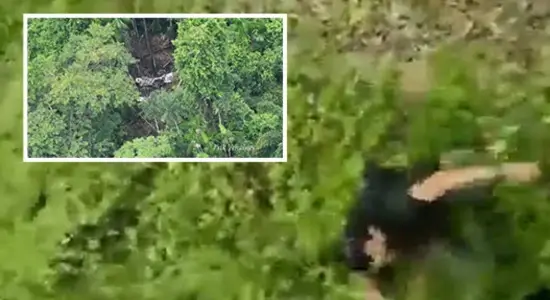
For five days, he stayed near the wreckage, hoping search planes would spot the smoke. He screamed. He waved. He lit fires. Rescue aircraft passed overhead, close—agonizingly close—but never low enough to see him through the forest’s thick green ceiling. Then… silence.
“I thought they had stopped looking. I thought they believed I was dead.”
That’s when Sena made a decision: if help wouldn’t come to him, he would walk out of the jungle himself.
He followed the sunrise, moving east. But his food ran out quickly. He was left with only water and sugar-packed soda. His body was weakening. He needed protein. He needed something—anything—to survive.
That’s when he saw the monkeys.
They were eating small fruits. Pecking at eggs. So Sena did too. He mimicked them, hoping their instincts could be trusted. He ate what they ate: wild fruits and the eggs of tinamou birds. “If the monkeys can live on this,” he thought, “maybe I can too.”
But food wasn’t his only threat.
The Amazon isn’t just trees and vines—it’s a living, breathing predator’s paradise. Sena slept knowing a jaguar might be watching. That an anaconda could slide up next to him. That he might never wake up. And yet, he pushed forward—step by step, day by day.
On day 35—thirty-five days without rescue, contact, or certainty—he heard something new.
A chainsaw.
Not an animal. Not an illusion.
A chainsaw.
He ran toward the sound. And finally, he saw them: people. Workers at a Brazil nut harvesting camp. They stared at him like he was a ghost. Dirty. Bloody. Swollen from insect bites. His clothes in tatters. He had lost 25 kilograms. But he was alive.
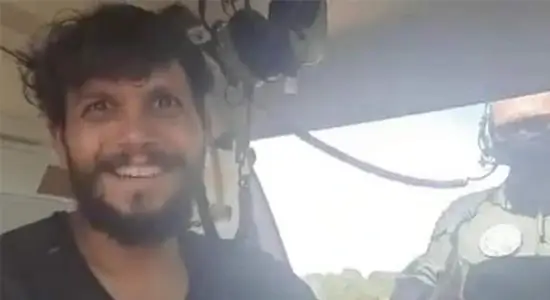
Maria Santos Tavares, the camp owner, gave him food, clean clothes, shelter. She helped contact the authorities and his family. After more than a month lost in the jungle, Antonio Sena was no longer missing.
Later, when interviewed, Sena admitted something that haunted him:
“I never wanted to take that flight. I used to run a restaurant, but COVID shut it down. I had no money, no options. This job… it was the only thing available.”
He vowed never to fly into the Amazon again—but he also said this:
“No matter what happened to me, the Amazon is still a beautiful and pure place. It doesn’t deserve what we’re doing to it.”
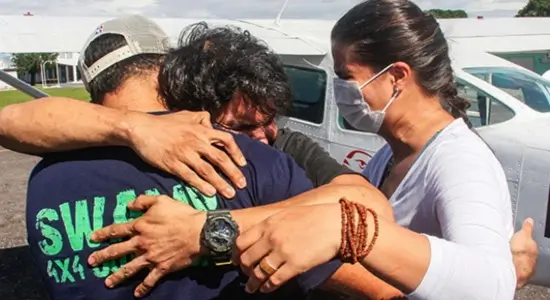
Sometimes survival means letting go of everything you know. Sometimes, it means listening to the jungle.
Even if the jungle speaks through monkeys.

